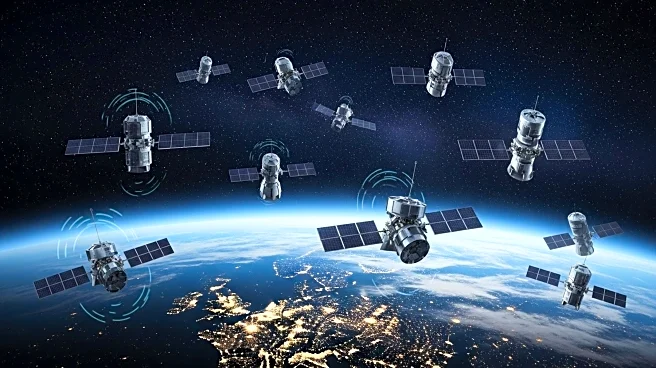What's Happening?
Novaspace, a French space consultancy, has released a report predicting the launch of over 43,000 new satellites in the next decade, generating a market value of $655 billion through manufacturing and launch services. The report highlights that the majority of this market value is 'nationally captive,' meaning it is dominated by government demand and national primes. The U.S. is expected to see significant contributions from SpaceX's Starlink and Starshield, as well as Amazon's Kuiper, while China will focus on its Guowang and Qinfan constellations. The report also notes a shift towards decentralized networks and multi-orbit systems, moving away from traditional GEO satellites.
Why It's Important?
The anticipated surge in satellite launches represents a major shift in the space industry, with significant implications for global connectivity and technological advancement. The concentration of market value in government-driven projects underscores the strategic importance of space for national security and economic development. The rise of mega-constellations could enhance global internet access and drive innovation in satellite technology. However, the dominance of defense budgets in the market may lead to increased dual-use capabilities, blending commercial and military applications. This trend could influence international space policy and competition among major space-faring nations.
Beyond the Headlines
The projected growth in satellite launches raises questions about space traffic management and the sustainability of orbital environments. As the number of satellites increases, so does the risk of collisions and space debris, necessitating improved regulatory frameworks and international cooperation. The shift towards decentralized networks may also drive advancements in satellite technology, fostering new business models and opportunities for private sector involvement. The emphasis on defense funding highlights the geopolitical dimensions of space exploration, with potential implications for global security and diplomatic relations.










